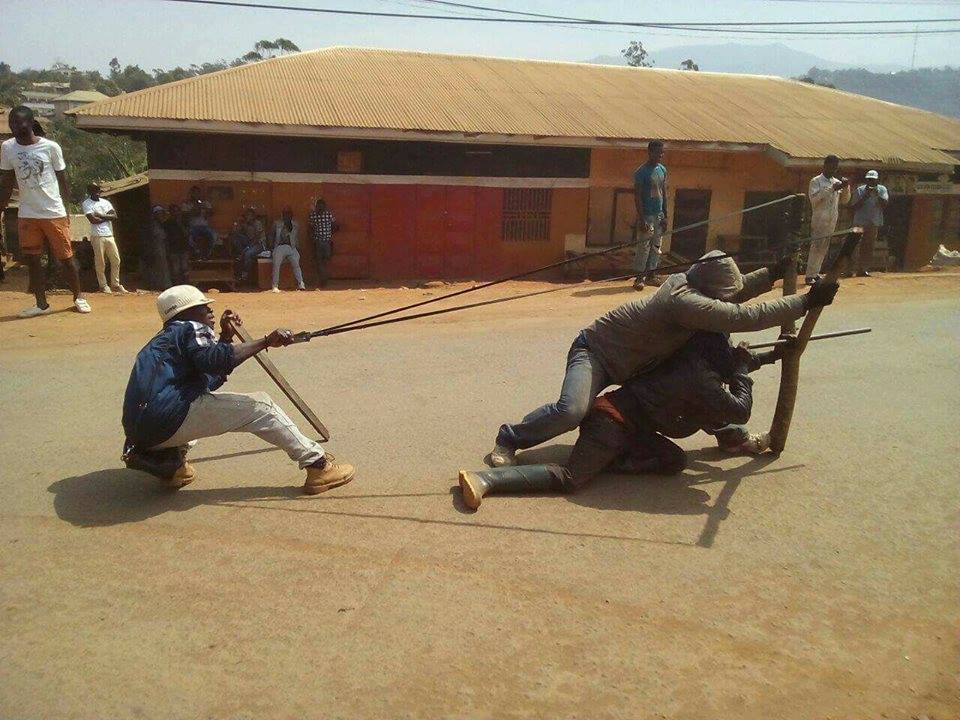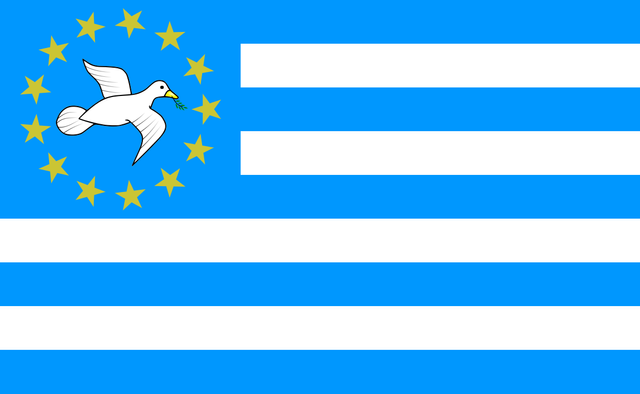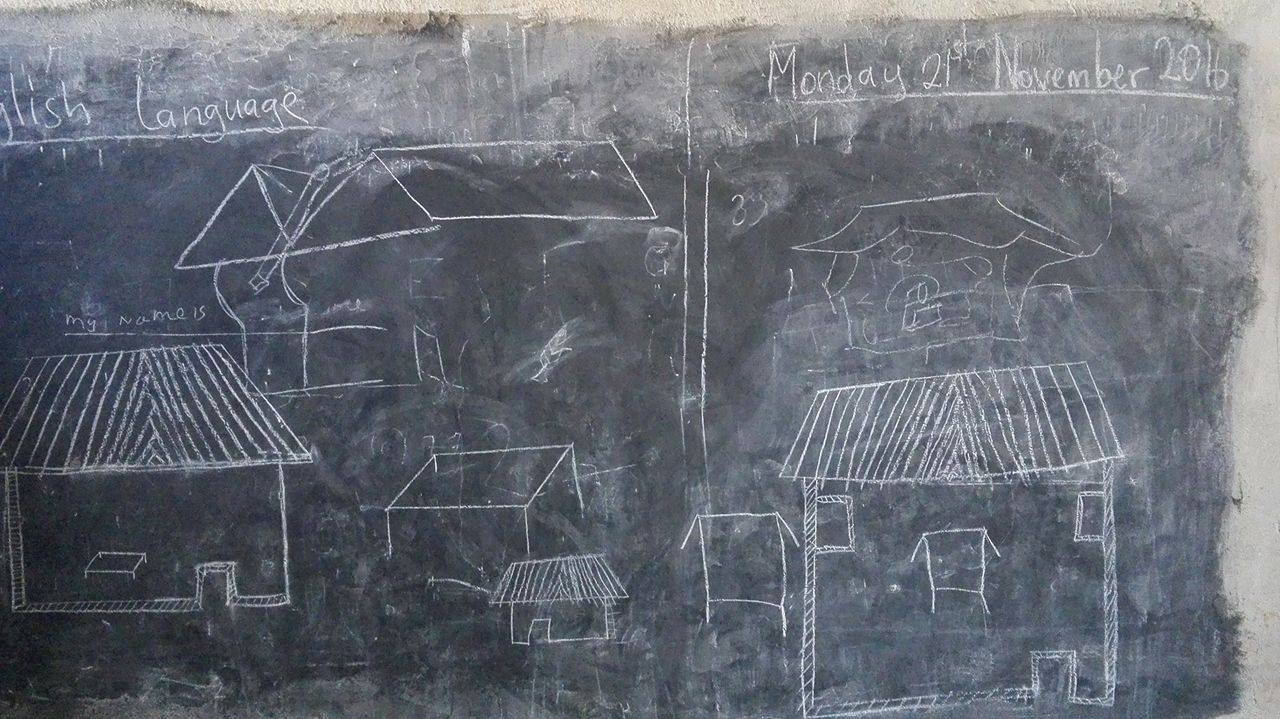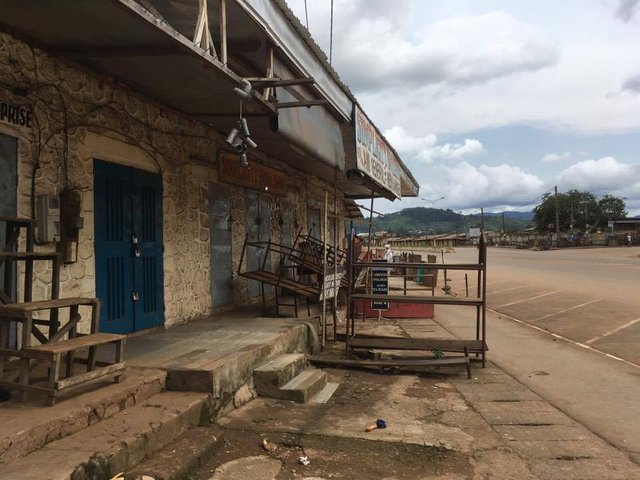Raising of Ambazonia - new country in Africa. Why do doors of schools in Anglophone part of Cameroon stay closed for millions students already second academic year? Why have schools been burned down? Why don’t we hear about it?
What and where is Ambazonia?
Everyone probably knows about the country “La République du Cameroun” or “The Republic of Cameroon”. The term Ambazonia, though, simultaneously used with Southern Cameroon, West Cameroon and Anglophone Cameroon remains unknown to most of us. For the citizens of that particular territory, terms excluding the usage of the word Cameroon are favored, since the mentioned territory does not belong to The Republic of Cameroon in any official or legal manner. So where does this chaos with denomination come from, what does it imply and where does it lead to? The following article will highlight the history of Cameroon and the current political situation to give a probably new point of view towards the country.
The word Ambazonia (Ambas meaning fertile dark-brown soil) derived from the word Ambas Bay which is acknowledged as the natural boundary to The Republic of Cameroon.

Huge catapult became a symbol of resistance - source
Colonial history and division of the country
The roots of the current Anglophone crises reaches back to 1918, when Germany lost the established, so-called, protectorate of German Kamerun at the end of the First World War and, in turn, France and UK were appointed by the League of Nations to take over. Since then the two colonial powers shaped each of their territories according to their own model. The British introduced the Common Law, their education and currency system and a system of indirect rule which allowed the local chiefdoms to keep a part of self-government with a strong similarity to Nigeria. Contrary to that, the Francophone part of Cameroon was under the direct administration of France with the aim to assimilate, thus it was less democratic.
The reunification of the, at the time, two separate Cameroons is where the foundation of the recent problem lays. On the first of January in 1960 the territory regulated by France became independent and so the Republic of Cameroon was founded. The British territory separately held a referendum on 11 February 1961 in which Northern Cameroon decided to join Nigeria, while Southern Cameroon chose the Republic of Cameroon, reaching independence at the first of October 1961. Though Southern Cameroon favored independence, the UK and other countries considered the territory as economically not strong enough with the UN excluding the independence option.
The president of the Republic of Cameroon, Ahmadou Ahidjo, and representatives of Southern Cameroons negotiated the terms of reunification in 1961 where Southern Cameroon assumed their participation is on in drafting of a constitution that guarantees federalism including large autonomy. Instead, the president Ahidjo proceeded with a constitution handing over the majority of power to West and East parts of the country. The Anglophones, in their weak position, could only accept the constitution that was declared by the National Assembly of the Republic of Cameroon. Instead of becoming a federal republic, in practice, it became a system with unequal distribution of power between the two states.
In 1972, Anglophones began to face and fight their marginalization, when Ahidjo strengthened the centralization and abolished the federalism. The country became the United Republic of Cameroon. In 1983, when Paul Biya took over the presidency, the country was further centralized and the Anglophone region was divided into two provinces, Northwest and Southwest. One year later, in 1984, the country underwent another change in its official name, back to the name of the former Francophone territory, the Republic of Cameroon. Further, Biya removed the second star from the Cameroonian flag, which deleted the Anglophone representation from it.

Ambazonia flag - source
Recent Anglophone crises since October 2016
Serious strikes commenced in October 2016 apparently led by the two main supporting groups, the Southern Cameroons National Council (SCNC) and the Cameroon Anglophone Civil Society Consortium (CACSC), which are now both criminalized as a result of supporting the objective to establish a fair federal system or to go even further - reaching the separation and creation of an independent English spoken Southern Cameroon. To emphasize - the protests were led by students, teachers, and lawyers who could not stand the inequality and the huge frustration anymore, resulting in the closure of all schools in the Anglophone region (from 21st of November until now!) and the establishment of a so-called Ghost Town during Mondays and court days. Ghost Town demands the closure and still-stand of all businesses in the Anglophone region during that day from 6 AM to 6 PM. Nowadays it is strictly imposed with serious consequences for those who do not respect the agreement. As the strike continued, unfortunate bursts of violence carried out by unknown groups of radical separatists as they burned down those businesses, hotels, and schools that were not obedient towards the agreement of a silent strike. Recently, in Bamenda the government reacted with in stating consequences as well; following each Ghost Town day, the council would lock the shops of those who participated in Ghost Town closure. This method is discussed and does not encourage small businessmen to keep their shops open in fear of having their businesses burned down as a consequence of not obeying the Ghost Town rules, but instead fuels further anger and resistance.
Since the outbreak of protests in October 2016 many Anglophones were imprisoned or sentenced. The prison conditions in Cameroon are very poor with chronic overcrowding situations leading to insufficient nutrition conditions and limited access to medical services and lack of hygiene and sanitation. “Official reason” for the huge overcrowding is the mass arrests of accused Boko Haram supporters.
Since the protests in the Anglophone region from October 2016 up to now, there have been many instances of Anglophones imprisoned - journalists and major separation supporters are the new target group of The Republic of Cameroon to tone down the conflict.
In remembrance to those arrested, additionally, Ghost Town takes place regularly during the days the court meets for those hearings. The economy of the Southern region is at its lowest point, while the people who suffer the most are small businessmen, whose savings are already gone due to the crisis lasting nearly a year. Additionally, one should consider the complex consequences when schools are closed for all inhabitants of the Anglophone region.
Two of the ten regions of Cameroon are Anglophone, the so-called Northwest and Southwest, covering 42,383 sq km out of a total of 475,442 sq km. Officially Cameroon is inhabited by 24 million people, with 5 million living in the Anglophone area. In total, 60% of Cameroonians are under 25 years (12 Mil) with a population mentioned of 24 Mil citizens in whole Cameroon, accordingly one can calculate that around 1,5 million children and youth are left out of education and any educational activity at all since a year.
Though those numbers are only speculations, whatever the exact number is, the government should consider the full extent of consequences when such a large amount of population is denied education.
Schools remain closed
Two days ago, 04th of September 2017 the new school year was supposed to start after the regular summer break and the loss of one complete school year for Anglophones. At least for the people of La Republique du Cameroun and Anglophones who moved themselves and their kids to the Francophone region, the new school year started. In order to encourage Anglophones to start the school again, the president Paul Biya released a part of previously imprisoned Anglophones to reduce the tension. It is also known that there was a try to influence people channeled via the church since the church is one of the biggest influences around. Though it seems like the strategy has failed if you look at the fact that schools are still closed and riots have started in Banzo division, a part of the Anglophone region, with early cases of wounded and dead. While there is no professional media coverage one must rely on very insufficient updates mostly published in Facebook from the opposition that pushes more radical movements out of their exile. The non-existing international interest does not help either.
Coming back to the school closure, just to mention some consequences, one primarily needs to consider the youth that has no occupation and no education, which can lead to criminal acts like theft and robbery, as well as drug or alcohol addiction due to frustration and stay idle leading to poverty. Additionally to growing poverty, the food supply is limited which in turn leads to poaching of wild animals (like birds, small mammals, even endangered species), increased intensity of deforestation to acquire more land for agriculture and similar criminal acts.
Even our Misty Mountain School stays closed

Recent picture of class 1 of our school (last day of school 21st November 2016)
Southern Cameroon Development
The humiliating poverty and treatment of Anglophone citizens of Cameroon come with a sizeable inequality between the two divided regions. One reason for that, among others, is the roads that need an urgent and proper makeover. Due to the extreme weather conditions and insufficient reparations, the roads become extremely worn-out during the rainy season which affects trade with the neighboring country Nigeria, the region of La Republique du Cameroun and even the trade between the two Anglophone regions, Northwest and the Southwest. While, for example, the Northwest region is the leader in terms of beef, maize, huckleberry, carrot, onion, potatoes, and cabbage production. South West region of Anglophone Cameroon, with its very different weather conditions, is known for their oranges, cassava, banana, papaya, with an estimated post-harvest loss of about 70% due to the short shelf life of products as mentioned before. Besides the roads, indicators for an unequal situation in the Anglophone region and its consequences are also health care, education, and legal situation. Hospitals in the Anglophone region must rely on outdated equipment.
The Anglophone school system also differs from the Francophone one. The Anglophone one consists of seven years of primary school, while the Francophone has six. Also, the final exam arrives earlier in the Francophone schools, which benefits them to start working before the Anglophone citizens. While the Anglophone schools focus intensely on studying the French language in school to have equal opportunities in a bilingual country, the English language is not taken seriously and it is considered unnecessary in the Francophone region. It must be mentioned that teachers of government schools are employed by the government itself who prioritize to send many Francophone teachers to the Anglophone region, leaving the Anglophone teachers unemployed. The unemployed teachers and the students who are being taught in French while attending school in Anglophone region are not the only frustrated ones, whilst graduates mostly stay unemployed. Most people work in small businesses since it seems impossible to enter governmental jobs market with an Anglophone name.
Communication is another example to prove that a French system is exclusively supported by the public authorities. Entering a governmental building comes with quite some humiliation for Anglophones. It is surprising for bystanders to see that any public authority in the Anglophone region speaks only in French. Including gendarmes, police and other security authorities that will speak mostly in French in any situation.

Ghost town at Commercial Avenue in Bamenda 4th of September 2017 (source - @rukmaars)
Some numbers in order to show that we don’t talk about a minor, self-solving problem here - 20% of Cameroonians are marginalised, having lived through more than six months of strikes, three months without internet (it was completely cut by the government to avoid organized strikes after serious riots in January) and the loss of one complete school year. The demand is a fair federalism (between 1961 and 1972 a federal model existed), or, after realizing no positive development in that direction backed by the state has been experienced and none will be, even more, radical solution - secession.
Cameroon is a clear example of a mess, as the aftermath of colonization and illegal division of territory, which was followed by lack of international interest, responsibility and support, showed dangers of centralization which led to ineffective decentralised program (from 1996 onwards), a desire for integration, which, not fulfilled, is leading to a fight for autonomy, a weak legitimacy of the Anglophone elites, a fail of multiculturalism and bilingualism and bad governance.
Still, the president has not recognized the problem publicly while the movement’s leading figures are arrested and the political debate of Anglophone Cameroon is criminalized. A solution must be found before the presidential and parliamentary elections in 2018.
Anglophones aim to in-state officially recognized independence at the first of October, 2017, as a remarkable date (remembering the reunification with the Republic of Cameroon on first of October, 1961). Yet the tension is growing daily and it remains unsure how the independence of Ambazonia can be reached within less than a month and if it is the best and non-violent solution.
source 1, source 2, source 3, source 4
Save Abongphen Highland Forest and its inhabitants together with us!
You can choose from many ways:
- Donate to our NGO’s account @kedjom-keku any amount of STEEM or SBD
- Use our voting bot @treeplanter. Plant trees and get paid for it!
- Donate BTC to our blockchain wallet
- Donate Solarcoins to our wallet
- Send donation to our bank account
- Use Crowdfunding portal of our new website www.kedjom-keku.com
Read, upvote and resteem other active articles of me @martin.mikes, NGO @kedjom-keku or voting bot @treeplanter
@treeplanter
- I have new icon! But still, need more Steem Power to satisfy your demands. Please delegate some to me to be able to plant more trees!
- Voting bots = money making machines? + interview with @personz
Thank for shedding light on this very important issue. I really appreciate your contribution.
that's a slingshot and a half
I guess I have nothing much to add to the topic and just hope the outcome comes around with no violence and both parts of the country can land on their feet. Good luck with the new government wherever their office might be located haha :))
I was thankful to read this information about Cameroon and Ambazonia, having been woefully deprived of it by the wholly owned media. What part of Cameroon is Abongphen Forest in?
Hello, Abongphen Highland Forest is 20 km from the center of protests which take place in Bamenda.
Thanks for posting such an insightful article.
thank you too